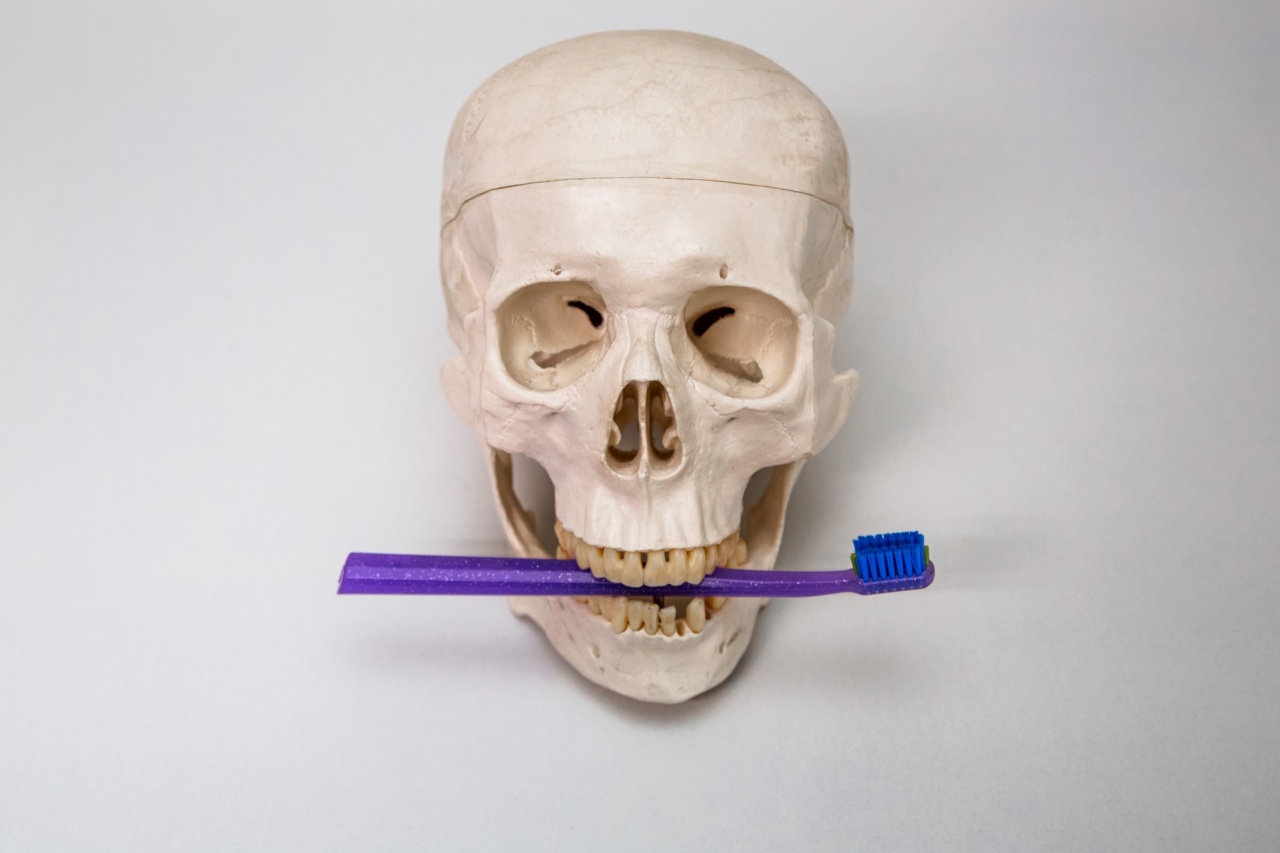When it comes to maintaining overall health and wellbeing, it is crucial to prioritize regular checkups.
While most people focus on general health screenings, such as blood pressure, cholesterol levels, and annual physical exams, one aspect that often goes unnoticed is bone health. Regular checkups play a vital role in identifying any potential bone-related issues early on, preventing further complications, and ensuring the longevity of healthy bones.
The Importance of Healthy Bones
Bones are a fundamental part of our body’s framework, providing support, protection, and mobility. As we age, our bones tend to weaken, making them more vulnerable to fractures and injuries.
Conditions such as osteoporosis, osteoarthritis, and even fractures can significantly impact our quality of life, resulting in chronic pain, limited mobility, and reduced independence.
That is why it is crucial to prioritize the health of our bones to maintain an active and fulfilling life.
Regular checkups serve as essential preventative measures and allow healthcare professionals to assess the current state of our bones and detect any potential issues before they escalate.
Early Detection and Prevention
Regular checkups provide an opportunity for early detection and prevention of bone-related conditions. Through routine screenings and diagnostic tests, healthcare providers can identify abnormalities or signs of bone loss at an early stage.
Bone Density Tests for Osteoporosis
Osteoporosis is a common condition characterized by low bone density and deterioration of bone tissue, leading to an increased risk of fractures.
Bone density tests, such as dual-energy X-ray absorptiometry (DXA), are commonly used to diagnose osteoporosis.
During a bone density test, specialized equipment measures the mineral content and density in specific bones, usually focusing on the hip, spine, and wrist.
The results are then compared to standard values, providing an accurate assessment of bone health and the risk of fractures.
By undergoing regular bone density tests, individuals at risk for osteoporosis can take appropriate measures to prevent further bone loss.
This may include lifestyle modifications, such as increasing calcium and vitamin D intake, regular weight-bearing exercise, and, in some cases, medication.
Screenings for Osteoarthritis
Osteoarthritis, a degenerative joint disease, often affects the joints in the hands, knees, hips, and spine. It occurs when the protective cartilage between bones wears down over time, leading to pain, stiffness, and limited mobility.
Regular checkups enable healthcare professionals to screen for osteoarthritis and recommend appropriate interventions. This may include physical therapy, pain management strategies, lifestyle modifications, and, in severe cases, surgical options.
Fracture Risk Assessments
Fractures, especially in older adults, can have serious consequences and significantly affect quality of life.
Healthcare providers can assess an individual’s risk of fractures through various tools, such as the Fracture Risk Assessment Tool (FRAX).
The FRAX tool takes into account various factors, including age, sex, previous fractures, and bone density, to estimate an individual’s risk of experiencing a fracture within the next ten years.
Based on the assessment results, healthcare providers can recommend appropriate preventive measures to reduce the risk of fractures, such as lifestyle modifications or medication.
Identifying Underlying Conditions
Regular checkups not only focus on specific bone-related conditions but also provide an opportunity to identify any underlying health issues that may be affecting bone health.
Conditions such as hormonal imbalances, malnutrition, certain medications, or chronic diseases can impact bone density and overall bone health.
By conducting a comprehensive evaluation during regular checkups, healthcare providers can identify and address these underlying conditions, helping individuals maintain healthy bones.
Other Aspects of Bone Health
Bone health is influenced by various factors, including lifestyle choices and nutritional habits. Regular checkups offer an opportunity for healthcare professionals to provide guidance and education on promoting healthy bones.
Exercise Recommendations
Regular exercise, particularly weight-bearing and muscle-strengthening activities, plays a crucial role in maintaining bone health.
During checkups, healthcare providers can recommend appropriate exercises tailored to an individual’s age, physical capabilities, and specific bone health needs.
By incorporating regular exercise into one’s routine, individuals can improve bone density and strength, thereby reducing the risk of fractures and other bone-related complications.
Dietary Guidance
A balanced diet rich in essential nutrients is vital for maintaining strong and healthy bones.
During regular checkups, healthcare providers can offer dietary guidance and recommendations to ensure individuals are consuming optimal amounts of calcium, vitamin D, and other bone-supportive nutrients.
Furthermore, healthcare professionals can address any specific dietary concerns or restrictions individuals may have, helping them make informed decisions to promote optimal bone health.
Monitoring Medications
Certain medications can have an impact on bone health, such as long-term use of corticosteroids or specific anticoagulants.
Regular checkups allow healthcare providers to monitor medication usage and, if necessary, make adjustments or recommend additional measures to protect bone health.
Psychological Wellbeing and Stress Management
Psychological factors, such as chronic stress or mental health conditions, can indirectly influence bone health.
During checkups, healthcare providers can address these aspects of overall wellbeing and provide recommendations for stress management techniques or appropriate resources to support mental health.
Conclusion
Regular checkups are not limited to general health screenings but also play a vital role in promoting and maintaining healthy bones.
Through routine screenings, diagnostics, and comprehensive evaluations, healthcare professionals can detect any potential bone-related issues, facilitate early intervention, and recommend appropriate preventive measures.
By prioritizing regular checkups and proactively addressing bone health, individuals can enjoy an active, pain-free life and reduce the risk of fractures, osteoporosis, and other bone-related conditions.































